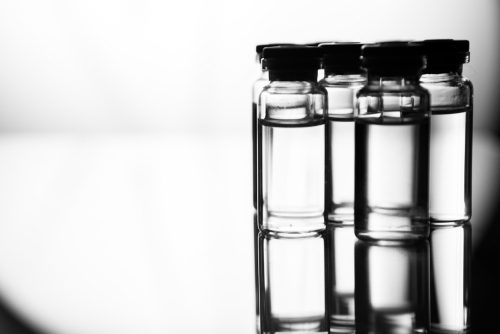AFM13, a bispecific antibody that recruits natural killer (NK) cells to the vicinity of a tumor, has shown promise in clinical trials of both Hodgkin’s lymphoma and in CD30-positive cutaneous lymphoma, Affimed, the therapy’s maker, announced.
For CD30-positive cutaneous lymphoma, treatment with AFM13 alone induced responses in two out of three patients treated with the lowest dose.
Among patients with relapsed or refractory Hodgkin’s lymphoma, combining AFM13 with Keytruda (pembrolizumab) was safe and induced a response in 89 percent of patients, including 44 percent with complete responses.
“We are extremely encouraged by these new data which indicate that the first-in-class NK cell engager AFM13 has achieved clinically meaningful responses both as single agent and in combination with a checkpoint inhibitor,” Adi Hoess, CEO of Affimed, said in a press release.
AFM13 targets the CD30 protein in cancer cells and the CD16A protein in NK cells. The treatment is meant to bring NK cells to the vicinity of cancer cells, boosting their anti-cancer properties. AFM13 is being investigated as a treatment for lymphoma patients, where cancer cells are known to produce the CD30 factor.
In an ongoing, investigator-sponsored Phase 1b/2a study (NCT03192202), the therapy is being tested in 18 patients with CD30-positive T-cell cutaneous lymphoma who failed at least one prior line of therapy. Participants will receive AFM13 in one of six dosing regimens to determine the dose with the best efficacy and minimum side effects.
Preliminary data from the first three patients — who received 1.5 mg/kg once weekly for eight weeks — revealed that the treatment was safe and induced one partial response and one complete response. The third patient experienced stable disease, with no signs of disease progression.
“Our early clinical experience has been impressive,” said Ahmed Sawas, assistant professor of medicine at the Columbia University College of Physicians and Surgeons and the New York-Presbyterian Hospital, and principal investigator of the trial. “The treatment was well-tolerated and, importantly, it could provide a new treatment for relapsed/refractory CD30-positive lymphoma patients, who currently have limited to no options.”
AMF13 is also being tested in a Phase 1b trial (NCT02665650) in combination with Keytruda for the treatment of patients with relapsed or refractory classical Hodgkin’s lymphoma.
The trial, being conducted in 14 sites in the U.S. and four in Spain, will include 33 patients who will receive increasing doses of AFM13 and a fixed dose of Keytruda.
Data collected from the nine patients treated with the highest AFM13 dose showed an 89 percent response rate. Among those who responded, half achieved a complete metabolic response and half a partial metabolic response. One patient experienced stable disease.
The results contrast significantly with the 58-63 percent overall response rates seen in patients treated with Keytruda alone.
The combination was also well-tolerated with most adverse events being mild to moderate in severity and manageable with standard-of-care.


